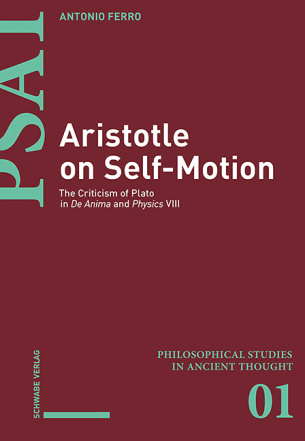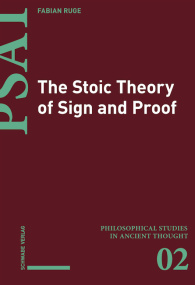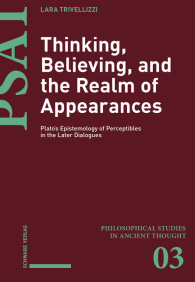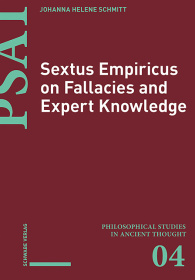

Herausgegeben von Béatrice Lienemann, Christian Pfeiffer, Christof Rapp
Vol. 1 Antonio Ferro
Aristotle on Self-Motion
The Criticism of Plato in De Anima and Physics VIII
What is Aristotle’s considered view of animal self-motion? According to several scholars, Aristotle ends up rejecting this very notion as a result of his criticism of Plato’s theory of a self-moving soul. Contrary to this still widespread assumption, the present study argues that his critical engagement with Plato is not confined to negative results, but achieves largely positive outcomes, which add up to a rich and nuanced picture of self-motion.
Ferro makes his case by offering a novel reading of a handful of controversial passages from De Anima (I 3–4; III 9–10) and Physics VIII, where Aristotle reacts to three aspects of Plato’s theory of self-motion: the claim that soul itself is a self-mover (and therefore a proper subject of motion), the assumption that self-movers enjoy strong causal autonomy, and the link between motion, desire and soul partition. Through a careful reading of the relevant passages, which does justice to their proper context and significance, Ferro shows that Aristotle’s critical re-appropriation of self-motion results in a largely coherent doctrine with major repercussions for Aristotelian psychology and philosophy of nature.
Bevorstehende Veranstaltungen
Bibliographische Angaben
| Reihe | Philosophical Studies in Ancient Thought |
|---|---|
| Seitenanzahl | 464 arabisch |
| Abbildungen | 2 s/w |
| Bindung | Buch, Gebunden |
| ISBN | 978-3-7965-4163-6 |
| Erscheinungsdatum | 11.04.2022 |


